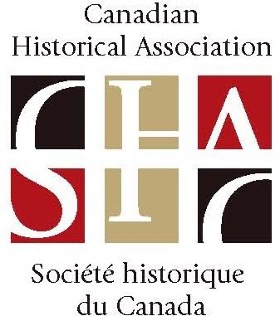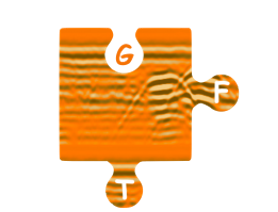Download a PDF version of this document here.
We are a group of scholarly associations and organizations whose members have expertise and experience relevant to the search for children who died and went missing while attending Indian Residential Schools: the Indigenous Heritage Circle, the Canadian Historical Association, the Canadian Archaeological Association, Geophysics for Truth, the Canadian Permafrost Association, and the Canadian Association for Biological Anthropology. Together, we call ourselves the Alliance to Support Indian Residential School Missing Children Investigations. Drawing on the Truth and Reconciliation Commission Calls to Action and the United Nations Declaration on the Rights of Indigenous Peoples, we are committed to supporting Indigenous communities along this difficult journey. We recognize the moral obligation of non-Indigenous members of Canadian society to redress the wrongs that have been and are still being perpetrated by the residential school system, as the Canadian state is built on the wealth extracted from Indigenous lands. Canada has a legal obligation under Bill C-15 to ensure federal laws are consistent with UNDRIP, which means Canada must provide redress for the loss of language, culture, and other intergenerational harms of the residential school system. Such redress must go beyond simply financial compensation and include supporting communities to revitalize their languages and cultures.
Under Article 8 of the UNDRIP: States shall provide effective mechanisms for prevention of, and redress for:
- Any action which has the aim or effect of depriving [Indigenous Peoples] of their integrity as distinct peoples, or of their cultural values or ethnic identities;
- Any action which has the aim or effect of dispossessing them of their lands, territories or resources;
- Any form of forced population transfer which has the aim or effect of violating or undermining any of their rights;
- Any form of forced assimilation or integration;
- Any form of propaganda designed to promote or incite racial or ethnic discrimination directed against them.
We are dedicated to providing sources of reliable and independent information for Indigenous communities, and supporting them in their search for their missing children. Our organizations can provide support at different stages in the process as outlined below.
Guiding Principles
Truth before reconciliation – Meaningful reconciliation can only happen in Canada when settler Canadians understand and recognize what Indigenous communities have long known - the truth of the genocide that occurred at Indian Residential Schools. We aim to support communities in uncovering the full extent of that truth. We also recognize the painful ongoing legacy of the IRS system in Indigenous communities and for Indigenous people.
Every child matters – The children who died and went missing were unique individuals who were loved by their families and communities. We strive to recognize their humanity and their individuality. They were not numbers. Every single child taken left a family and entire community grieving, and was one child too many.
Recognizing Indigenous rights and sovereignty – We recognize and support the right of every community to decide whether or not and how they wish to proceed with any investigations. We stand ready to provide information to assist in decision making and to support investigations to the best of our ability, recognizing that there are limits on our capacity.
Indigenous-led action – In addition to leading decision making, all aspects of this work should, as much as possible, be conducted by Indigenous communities. We are committed to providing training for Indigenous community members who wish to undertake this work.
Remembering Indigenous relations - The Residential School System sought to sever Indigenous connections with the Indigenous past, Indigenous lands, and Indigenous relations. Remembering relations is more than the erection of a plaque - it is recognizing that these children were the stewards of Indigenous languages, cultures, stories, and networks of kinship.
Areas where we can help
Investigations are complex, and undertaking them is a long process that should not be rushed. Given the difficult nature of this work and the potential for re-traumatizing Survivors, intergenerational Survivors, and their communities, having mental health supports in place should be a priority. Investigations will also involve navigating overlapping Indigenous and colonial jurisdictions.
The experience of communities that have already begun this work suggests a sequence of steps. At each stage, communities can decide whether to continue to the next. Some steps can occur in tandem, and memorialization and commemoration can happen at any stage. A possible work flow is outlined here. Suggestions for first steps are here.
Our associations can provide communities with information at each stage, and in some cases can connect communities with trusted, independent local experts who can advise on different stages of the process.
Culturally sensitive memory practices
Indigenous heritage is complex and dynamic. It encompasses ideas, experiences, belongings, artistic expressions, practices, knowledge, and places that are valued because they are meaningful and connected to shared memory. Remembering Indigenous ancestors will involve the revitalization of Indigenous cultural heritage and the recognition that kinship networks, and the role that they have in the transmission of culture, were severely damaged through the residential school system.

The Indigenous Heritage Circle is a growing network of Indigenous heritage practitioners who can provide assistance in regard to culturally-sensitive memory practices to remember Indigenous ancestors.
Contact: https://indigenousheritage.ca/who-we-are/contact-us/
Website: www.indigenousheritage.ca
Archival research and work with survivors
Initial information gathering can help to narrow the focus of investigations, helping communities make the most of available resources during investigations.

Where communities seek assistance with archival searches and/or collecting oral histories, the Canadian Historical Association may be able to direct them to people in their region who can offer help.
Email: cha-shc@cha-shc.ca
Website: https://cha-shc.ca/
Relevant Resources: IPIA Oral History Guide
Mapping and geophysical survey
This stage of investigations aims to identify potential locations of graves without disturbing the ground surface. The organizations below have expertise in a range of techniques that are useful in this regard. They can help to connect communities with local experts who can provide guidance on appropriate methods and support interpretation of the data.
Jurisdiction is often complex and can involve overlapping and contested claims. In some cases, regulatory bodies may require archaeological permits to conduct this work when it takes place outside reserve lands.

The Canadian Archaeological Association is Canada’s only national association of archaeologists. Our Working Group on Unmarked Graves consists of archaeologists from across the country who have experience in supporting Indigenous Communities in searches for unmarked graves. We are dedicated to developing information resources to help communities make informed decisions, providing training to Indigenous communities who wish to conduct this work themselves, and advancing knowledge of the most appropriate methods and techniques for such investigations in different regions and varying conditions.
Email: unmarkedgraves@canadianarchaeology.com
Website: https://canadianarchaeology.com/caa/
Resource page: CAA resources
 Geophysics for Truth
Geophysics for Truth
Geophysics For Truth is a volunteer initiative of 50+ geophysicists providing pro bono geophysical surveys, training and expertise for Indigenous Community projects across Canada. We offer Ground Penetrating Radar and other geophysical survey techniques to help with the detection and identification of burials related to former residential school sites.
Email: info@geophysicsfortruth.org
Website: https://live.wp3.its.queensu.ca/gftwww/

As many as 40 residential schools lie in northern Canada and the presence of permafrost at these sites may complicate the search for unmarked graves. Permafrost is ground that stays frozen year-round. The results of ground penetrating radar (GPR), and other geophysical techniques used to detect possible unmarked graves, can be affected by the presence of permafrost and related ground ice. Permafrost conditions are highly variable from place to place and can be dramatically different within a few metres. In areas with possible permafrost, specialized expertise is required to ensure the best geophysical technique is used and to accurately interpret the results. The Canadian Permafrost Association can direct communities interested in locating unmarked graves in places with possible permafrost to appropriate experts.
Email: secretary@canadianpermafrostassociation.ca
Website: https://canadianpermafrostassociation.ca/
Resource page: What is Permafrost?
Resource page: Permafrost data
Recovering and identifying the children: forensic and bioanthropological analysis
Some communities may decide to exhume unmarked graves, and other contexts, in order to identify and return missing children and/or to investigate their deaths. Doing so will mean navigating the ongoing discussions of law and jurisdiction on treaty and unceded lands both among Indigenous Peoples and between Indigenous Peoples and the governments of Canada. At this stage, investigations are likely to intersect with the responsibilities of multiple agencies of Canada and its provinces and territories, such as heritage regulators, police, coroners, and medical examiners.

Where communities wish to pursue identification, the Canadian Association for Biological Anthropology can help them identify the relevant authorities for a given school, and locate resources about the methods available to do this work.
Email: irs-unmarkedgraves@caba-acab.net
Website: https://caba-acab.net/
Resource page: https://caba-acab.net/residential-schools
*The Canadian Association for Biological Anthropology / l’Association canadienne d’anthropologie biologique has recently changed its name. It was previously known as the Canadian Association for Physical Anthropology / l’Association canadienne d’anthropologie physique
